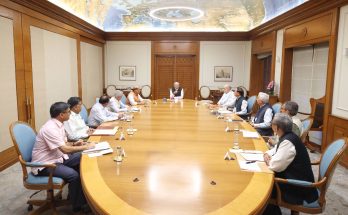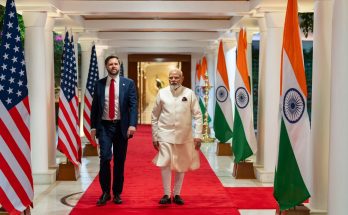
Days after the Quad meeting in Melbourne, the Indo-Pacific will once again be in focus at the Munich Security Conference and the EU Ministerial Forum in Paris where External Affairs Minister Jaishankar will engage with his counterparts in an attempt to shape a free, open and inclusive region that is being challenged by a rising China.
In Munich, Mr Jaishankar will hold bilateral meetings with Foreign Ministers and senior delegates attending the MSC and participate in a panel discussion on the Indo-Pacific. The wide-ranging interactions on the side-lines of MSG will help New Delhi get a more nuanced understanding of Europe’s evolving view of the Indo-Pacific and opportunities for collaboration in this crucial geography.
In Paris, Mr Jaishankar will hold a bilateral meeting with his French counterpart Jean-Yves Le Drian on February 20 and participate in the EU Ministerial Forum for Cooperation in the Indo-Pacific on February 22, an initiative of the French Presidency of the European Council.
In both Munich and Paris, China will be the elephant in the room and the subtext of contestation around a rules-based regional and global order. China’s disruptive activities in South China Sea and East China Sea have triggered international backlash.
India and the EU share common perspective on shaping a rules-based regional architecture in the Indo-Pacific. The EU Strategy for Cooperation in the Indo-Pacific, unveiled last year, underscores the 27-nation grouping’s recognition of the growing importance of the region and its commitment to reinforcing its role in cooperation with its partners there.
“The EU has a big stake in the Indo-Pacific region, and has every interest that the regional architecture remains open and rules-based,” said the EU strategy paper. “However current dynamics in the Indo-Pacific, , have given rise to intense geopolitical competition, adding to increasing pressure on trade and supply chains as well as in tensions in technological, political and security areas.”

Against this backdrop, Mr Jaishankar is expected to lay out India’s vision of an inclusive, rules-based and dynamic Indo-Pacific which will spur regional stability and prosperity. He is also expected to underline the pivotal role of the Quad and ASEAN to the evolving regional architecture in the Indo-Pacific.

In Melbourne, Mr Jaishankar, along with his counterparts from Quad countries, pushed for a free and open Indo-Pacific, “undaunted by coercion.” He also expressed his concerns that when a large country (read China) violates written agreements (in Ladakh incursions), the world has a stake in it as it could jeopardise regional and global stability. In Berlin and Paris, one can expect him to voice similar concerns. Going by mounting unease in Europe about Beijing, he can expect a receptive audience for his concerns.
Author Profile

- Manish Chand is Founder-CEO and Editor-in-Chief of India Writes Network (www.indiawrites.org) and India and World, a pioneering magazine focused on international affairs. He is CEO/Director of TGII Media Private Limited, an India-based media, publishing, research and consultancy company.
Latest entries
 India and the WorldApril 21, 20253T Template for India-US Mega Partnership
India and the WorldApril 21, 20253T Template for India-US Mega Partnership India and the WorldFebruary 14, 2025Modi-Trump COMPACT: India, US launch MEGA partnership for 21st century
India and the WorldFebruary 14, 2025Modi-Trump COMPACT: India, US launch MEGA partnership for 21st century India and the WorldJanuary 28, 2025Modi, Trump talk global peace, focus on strategic connect
India and the WorldJanuary 28, 2025Modi, Trump talk global peace, focus on strategic connect India and the WorldDecember 16, 2024Kazan Spirit: India, China SRs to hold talks in Beijing
India and the WorldDecember 16, 2024Kazan Spirit: India, China SRs to hold talks in Beijing







